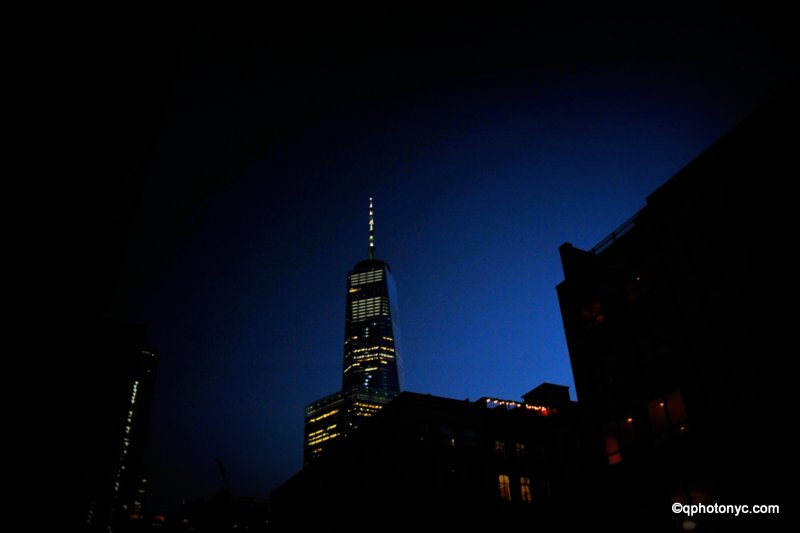September 11, 2018
An EMS medic recalls 9/11…
“Chelsea Piers had been transformed into a pop up ER, with hundreds of beds arranged like the headstones at Arlington: long straight lines and diagonals to the horizon, each bed with an IV pole and work tray beside it, and all of them empty.
“The evening of the attacks a couple dozen of us, EMS medics and Techs, were detailed to the West Side sport and entertainment complex where we waited for patients to treat, but none came. In the distance the remains of the Twin Towers burned. In my mind at least, the whole thing felt unreal. The feeling that something both horrible and historic had happened just hours ago was mixed with the absurd ordinariness of it all. Here were the familiar faces of coworkers, and the good old West Side Highway we drove on all the time. But also strange, because, aside from an occasional police car driving silently by, the streets were empty. Across the highway nobody was walking around and the highway itself was closed. Even at 4 in the morning I’d never seen midtown so deserted.
“Conversations were strained, awkward. We knew by then that we’d lost people downtown, just not who or how many. Nobody knew anything. It seemed like the attack was over, but that was still mostly hope. I had pleaded with the Lt. at Bellevue to send us down to Ground Zero to relieve crews that had been down there all day but he insisted we remain in Midtown because there was nobody else available to cover regular 911 calls there. Even so, we tried to make a break for it but got roadblocked at 23rd and the Highway and ordered into Chelsea Piers by an EMS Captain.
“There was absolutely nothing to do but stand around all night and wait. We rummaged in our kits for proparacaine thinking we might get lots of eye injury patients but we didn’t get any patients at all. At one point a truck filled with of hundreds of homemade pies arrived. The story was they came from some town Upstate and that the folks there had made them for us, the first responders. They were delicious. We stood around eating whole pies and feeling absolutely useless. Somebody joked that the pies might be poisoned and part of a follow on attack. It sounded plausible, but we were hungry and there was no other food around so we ate them anyway. I ate at least two whole pies myself. All the stores and restaurants were closed, of course. I chatted with a medic who drove all the way down from Rochester. We talked about Kodak. I ran out of cigarettes and a guy from the U.S. Public Health Service gave me a crate of L&Ms. They stock emergency cigarettes, evidently.
“Just before dawn another medic and I were given a special assignment: we were to drive to a hospital in New Jersey and pick up a patient and then bring him back to NY Hospital. This was unusual because we normally didn’t handle transfers. Private ambulances did those. And also because going outside the City limits was usually strictly forbidden. I felt relieved to leave Chelsea Piers behind and finally get to do something.
“We had the tunnel all to ourselves and then the NJ Turnpike too. We didn’t see a single other vehicle the whole way out. When we arrived and found our patient we learned he’d been evacuated by boat right after the planes hit and that’s how he wound up over there. He was wide awake and his condition was stable. My partner rode with him in the back and I was alone up front driving. The trip back was the same, still no other vehicles because all the roads into NYC were closed, but this time the Ground Zero smoke was directly ahead. It looked like a Hollywood apocalypse movie and I thought these could be my final hours on Earth. And yet I felt about the same as always, which was weird with everything that had just happened. It just hadn’t registered yet. None of it made any sense. It was like a bad dream.
“At NY Hospital a group of our patient’s tough looking buddies were on hand to meet him. They thought he’d died and in their joy and relief seeing him they erupted in hugs and tears. They were all strapped with guns but they weren’t NYPD.
“After that, the days and shifts kind of blur together. We eventually began to learn the names of some who didn’t make it, but everyone was just “missing” at first. At all the ER ambulance bays homemade flyers of other missing people completely covered the walls. There were so many and they were so young! It seemed like most of them were in their 20s or early 30’s. The flyers had their name, the company they worked for, a contact number and which floor. They usually also had a picture or two, and most of them showed these happy young New Yorkers out with their friends or family, having a drink after work with the gang, or standing in front of Niagara Falls or someplace else, just enjoying the moment when the photo was taken. That felt very unreal too and looking at them closely for awhile made me feel dizzy. Many of them probably died on 9/11 but he flyers stayed up for months after. Nobody wanted to take them down and nobody did.”


